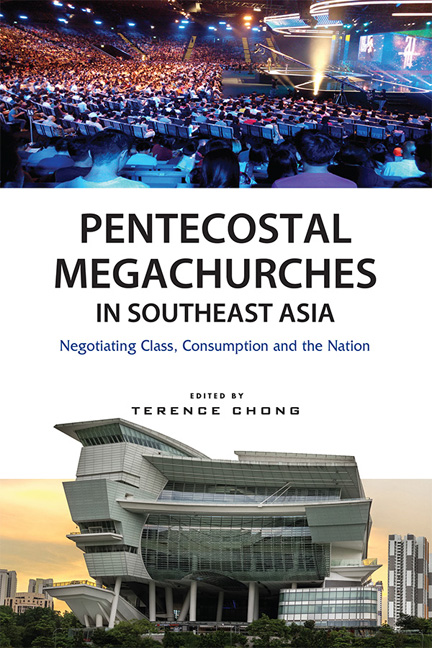5 - Pentecostalism in Klang Valley, Malaysia
from Malaysia
Published online by Cambridge University Press: 04 July 2018
Summary
Introduction
Klang Valley, comprising the federal capital Kuala Lumpur and the adjoining city of Petaling Jaya, is the most important urban centre in Malaysia. It is also in Klang Valley where one would find the highest concentration of churches in the country. This is because Christian missionaries during the British colonial period focused on spreading their faith in areas where immigrants from China and India lived and worked. As the number of converts grew, churches were also built in colonial Kuala Lumpur. However, the Christian population during British colonial rule was never more than a small fraction of the local population.
In the 1980s and 1990s, Christianity experienced a growth in number of adherents and churches in all the major urban centres in Peninsular Malaysia, particularly in Klang Valley. These churches range from small house churches to Pentecostal independent megachurches. It was the Pentecostal-Evangelical brand of Christianity, rather than that of traditional mainline denominations like the Anglicans and Methodists, which attracted people to these churches.
In this chapter, I will discuss Pentecostalism and its success in attracting a mainly urban middle-class population to its fold. For this purpose, I will begin by briefly discussing the history of Pentecostalism in Malaysia, followed by a discussion on the growth of the middle class. I will then offer a case study on the Bethesda church in downtown Petaling Jaya and argue that it is a window into the universe of Pentecostalism in the country, particularly its relationship with the middle class.
What is Pentecostalism? Briefly, Pentecostalism refers to the ecstatic forms of Christianity in which “believers receive the gifts of the Holy Spirit and have ecstatic experiences such as speaking in tongues, healing and prophesying”. Most Pentecostals can be considered evangelical in theological orientation; that is, they have a literal interpretation of the Bible, believe in personal salvation, in the need for holy living, and in having an emphasis on evangelism.
According to general scholarly consensus, Pentecostalism originated in the United States in the early twentieth century and then spread to the rest of the world through its missionaries.
- Type
- Chapter
- Information
- Pentecostal Megachurches in Southeast AsiaNegotiating Class, Consumption and the Nation, pp. 100 - 124Publisher: ISEAS–Yusof Ishak InstitutePrint publication year: 2018

